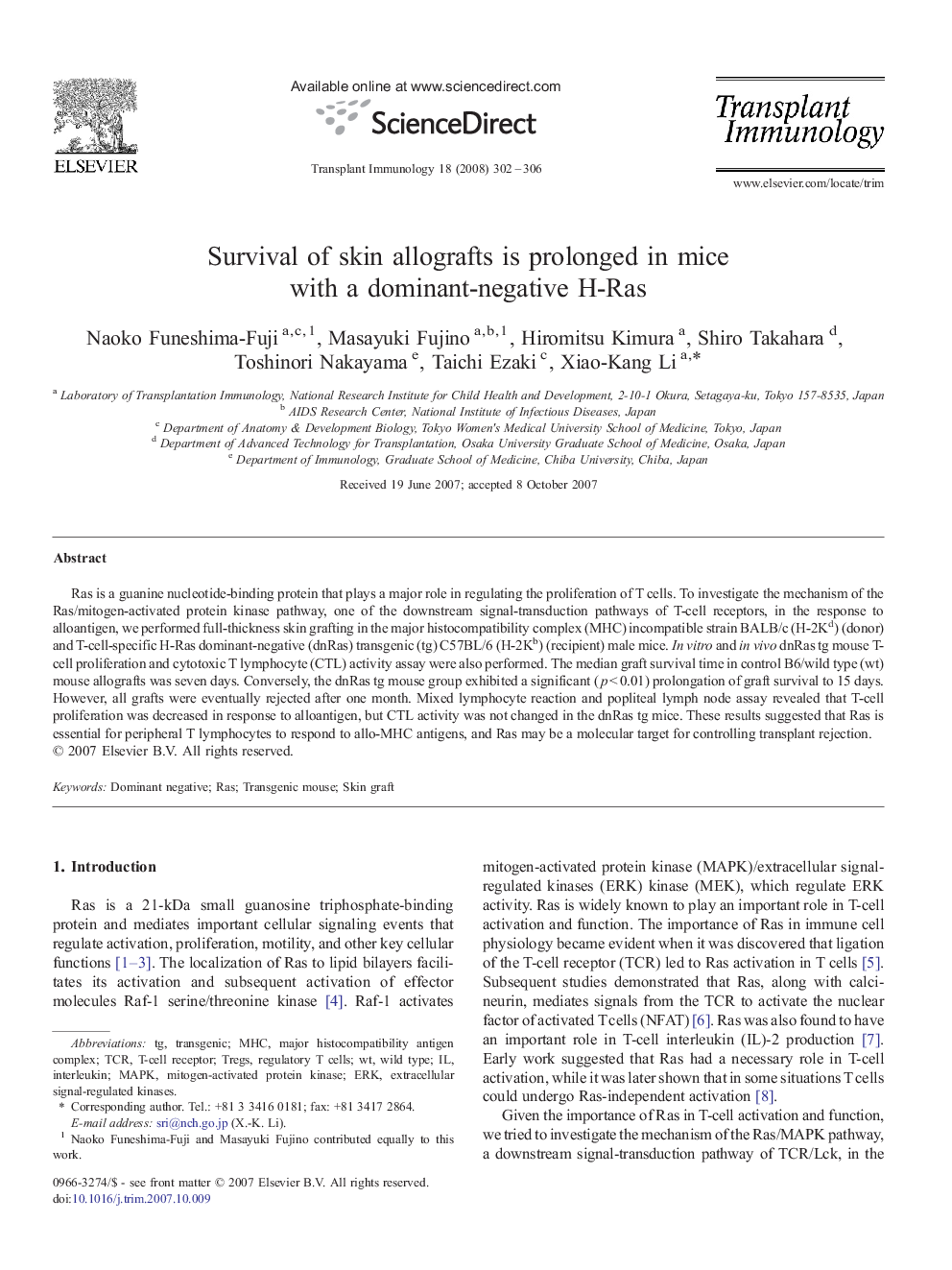| Article ID | Journal | Published Year | Pages | File Type |
|---|---|---|---|---|
| 3392615 | Transplant Immunology | 2008 | 5 Pages |
Abstract
Ras is a guanine nucleotide-binding protein that plays a major role in regulating the proliferation of T cells. To investigate the mechanism of the Ras/mitogen-activated protein kinase pathway, one of the downstream signal-transduction pathways of T-cell receptors, in the response to alloantigen, we performed full-thickness skin grafting in the major histocompatibility complex (MHC) incompatible strain BALB/c (H-2Kd) (donor) and T-cell-specific H-Ras dominant-negative (dnRas) transgenic (tg) C57BL/6 (H-2Kb) (recipient) male mice. In vitro and in vivo dnRas tg mouse T-cell proliferation and cytotoxic T lymphocyte (CTL) activity assay were also performed. The median graft survival time in control B6/wild type (wt) mouse allografts was seven days. Conversely, the dnRas tg mouse group exhibited a significant (p < 0.01) prolongation of graft survival to 15 days. However, all grafts were eventually rejected after one month. Mixed lymphocyte reaction and popliteal lymph node assay revealed that T-cell proliferation was decreased in response to alloantigen, but CTL activity was not changed in the dnRas tg mice. These results suggested that Ras is essential for peripheral T lymphocytes to respond to allo-MHC antigens, and Ras may be a molecular target for controlling transplant rejection.
Keywords
Related Topics
Life Sciences
Immunology and Microbiology
Immunology
Authors
Naoko Funeshima-Fuji, Masayuki Fujino, Hiromitsu Kimura, Shiro Takahara, Toshinori Nakayama, Taichi Ezaki, Xiao-Kang Li,
